Easy Tracing Numbers worksheets activities for Ages 5-6
10 filtered results
-
From - To
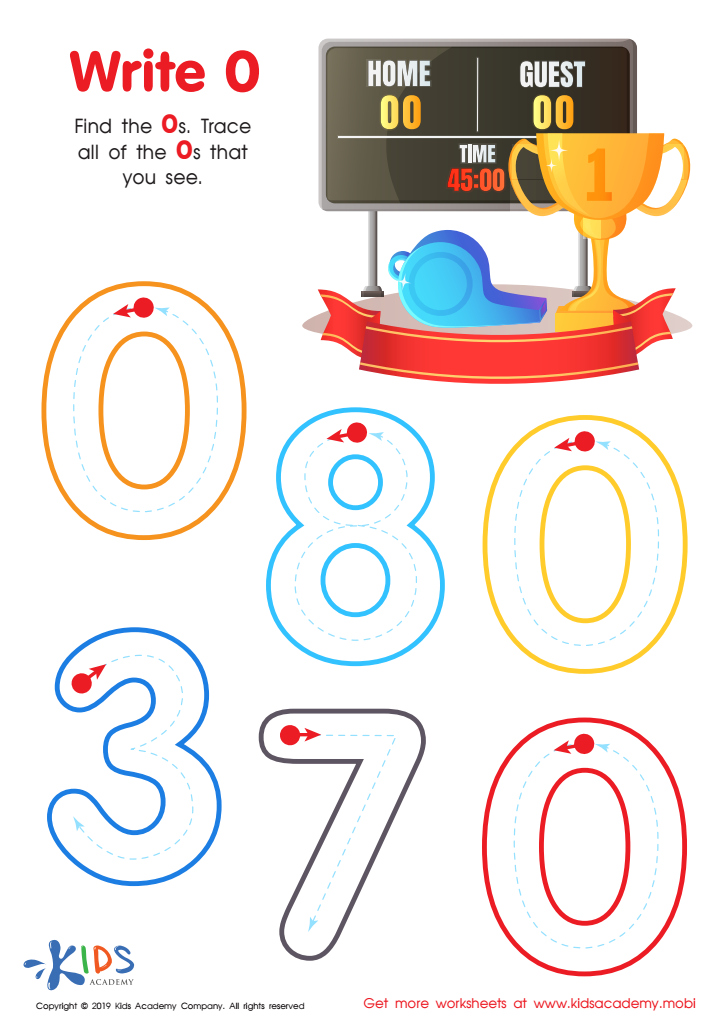

Write 0 Worksheet
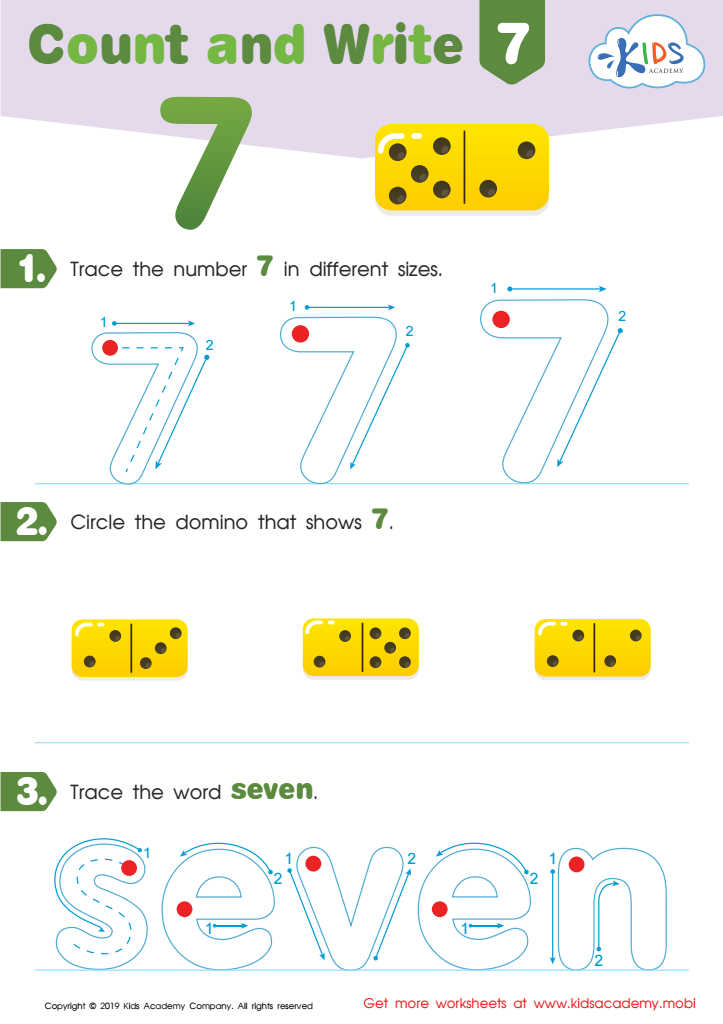

Count and Write 7 Worksheet
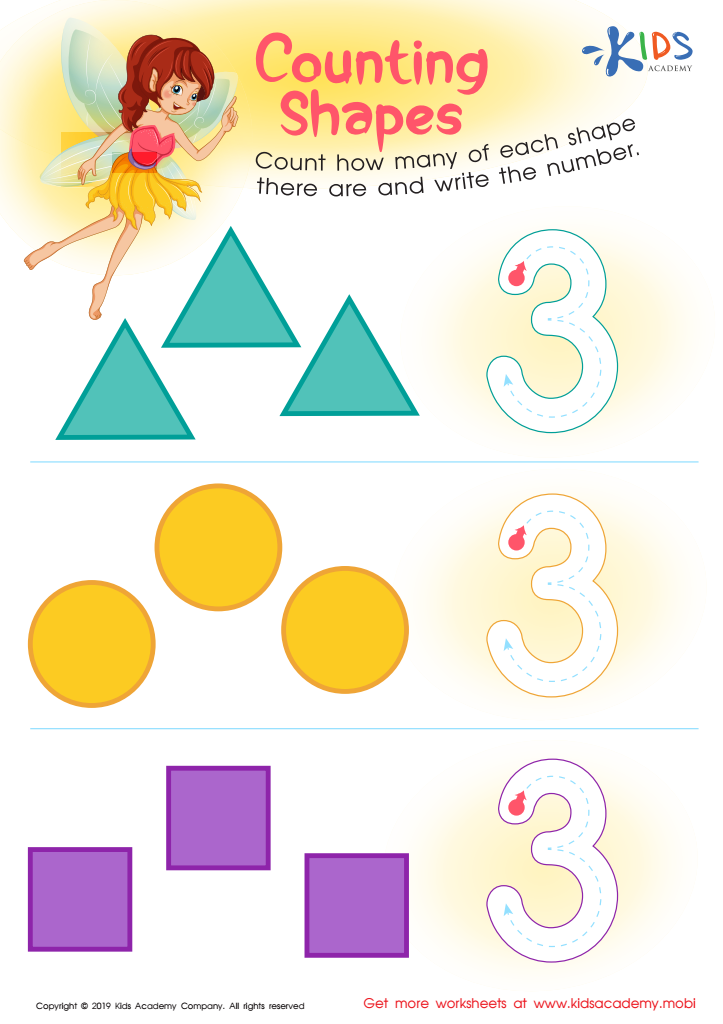

Counting Shapes Worksheet
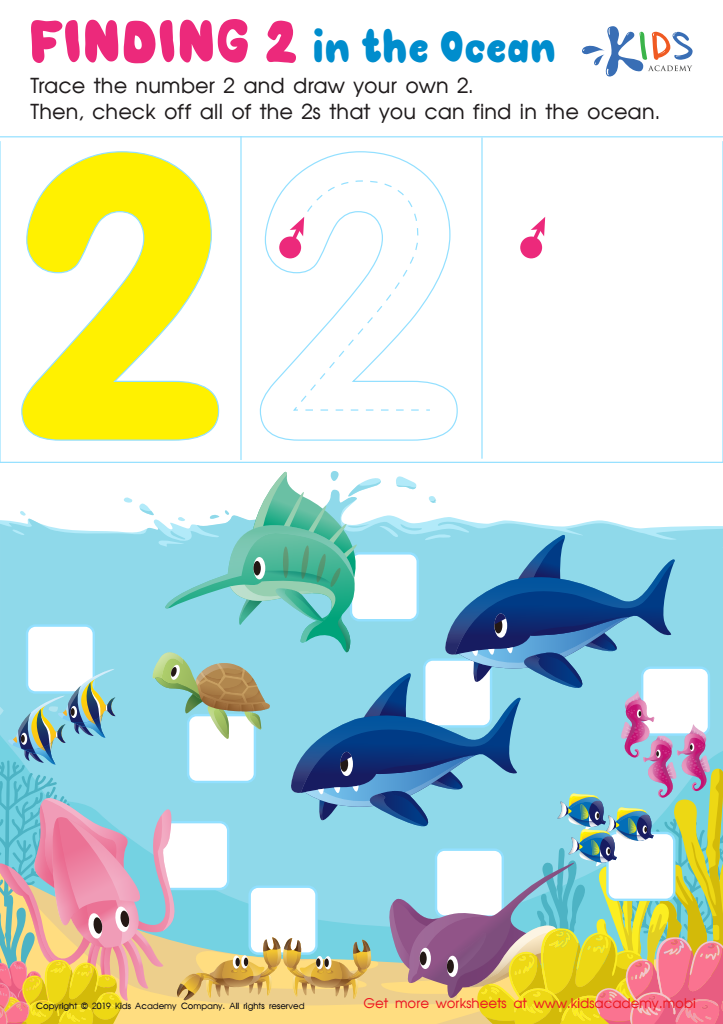

Finding 2: In the Ocean Worksheet
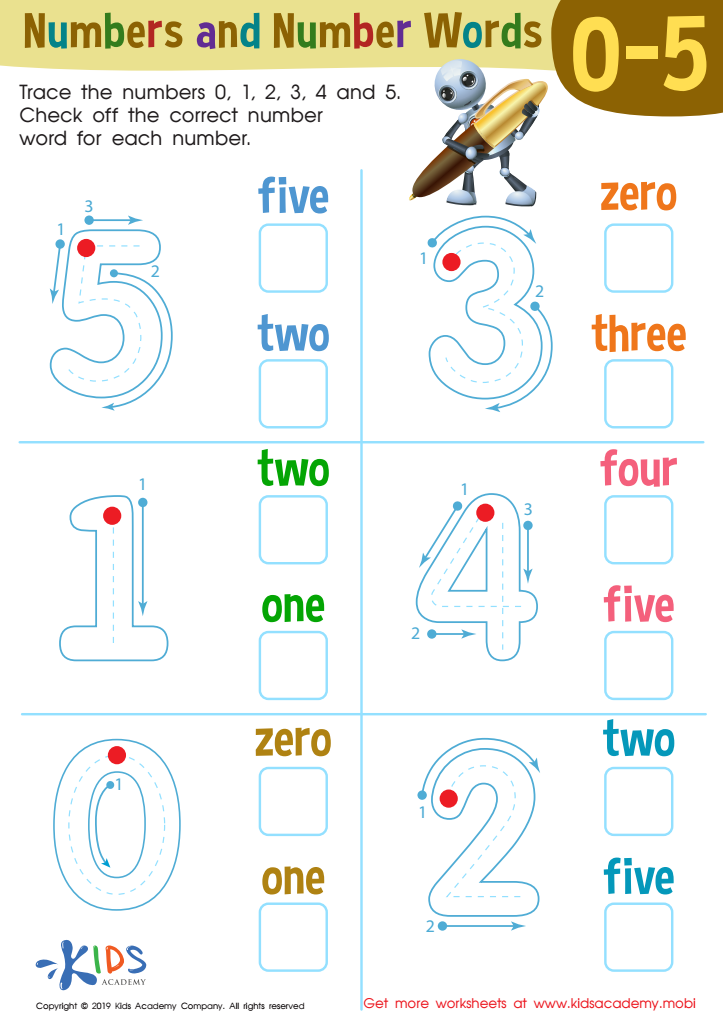

Numbers and Number Words Worksheet
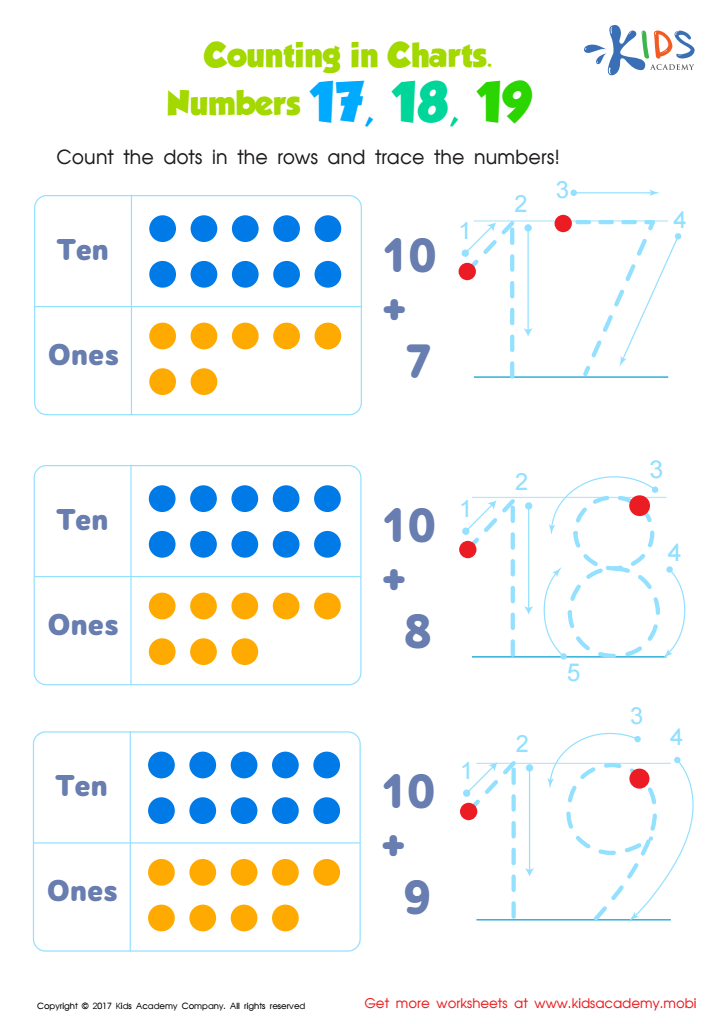

Kindergarten Number Tracing: Counting in Charts Worksheet
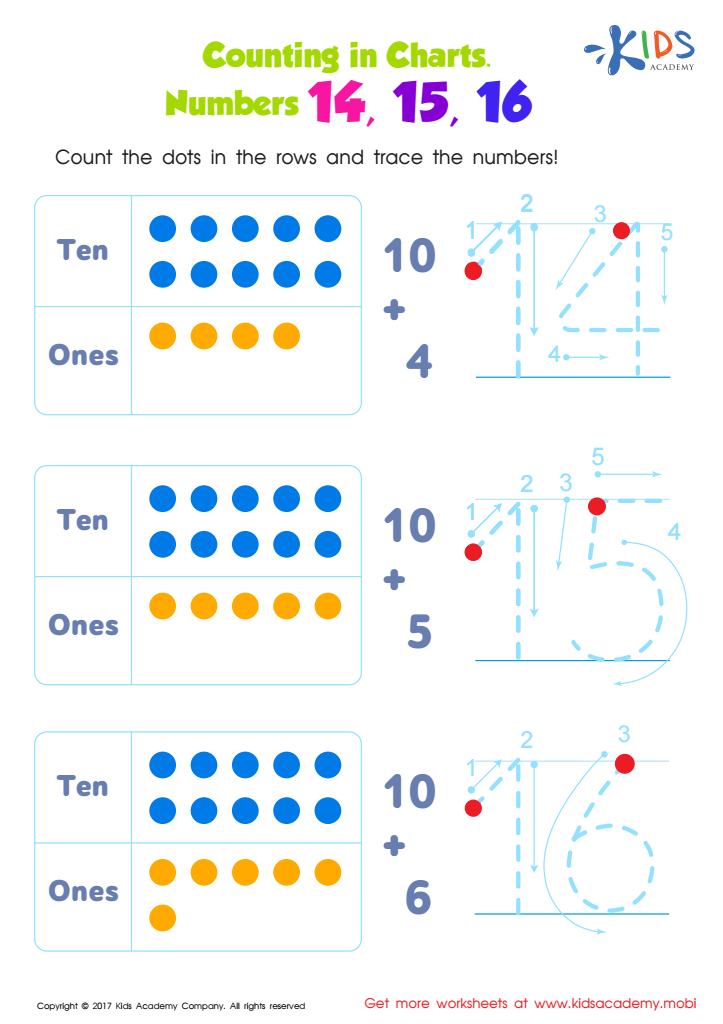

Number Tracing Worksheet
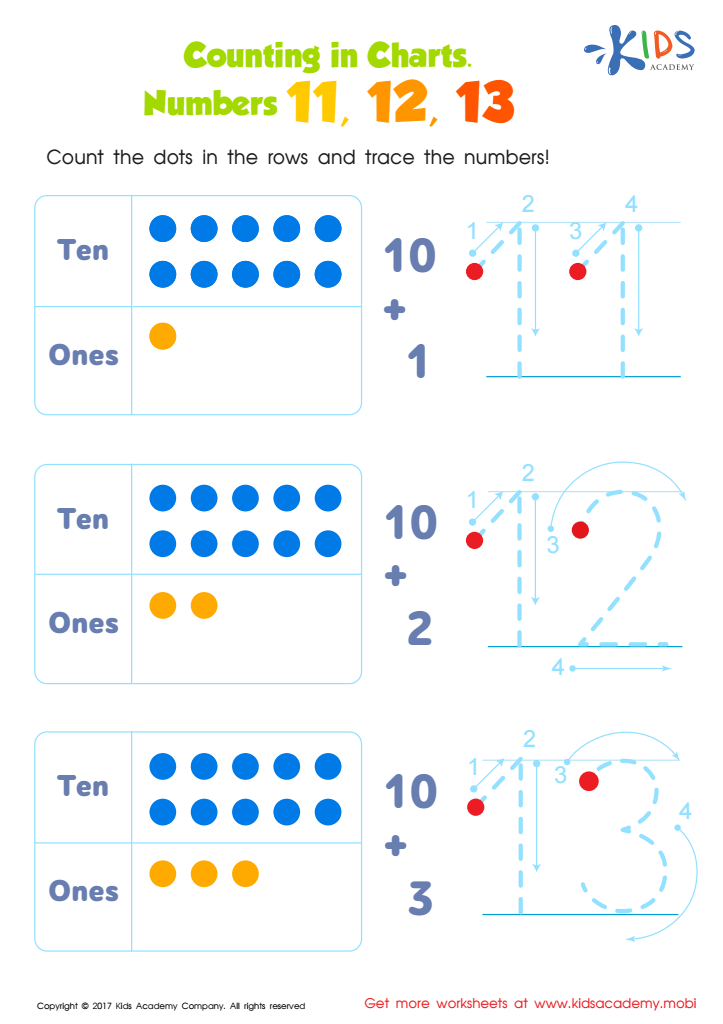

Number Tracing Worksheet For Kindergarten
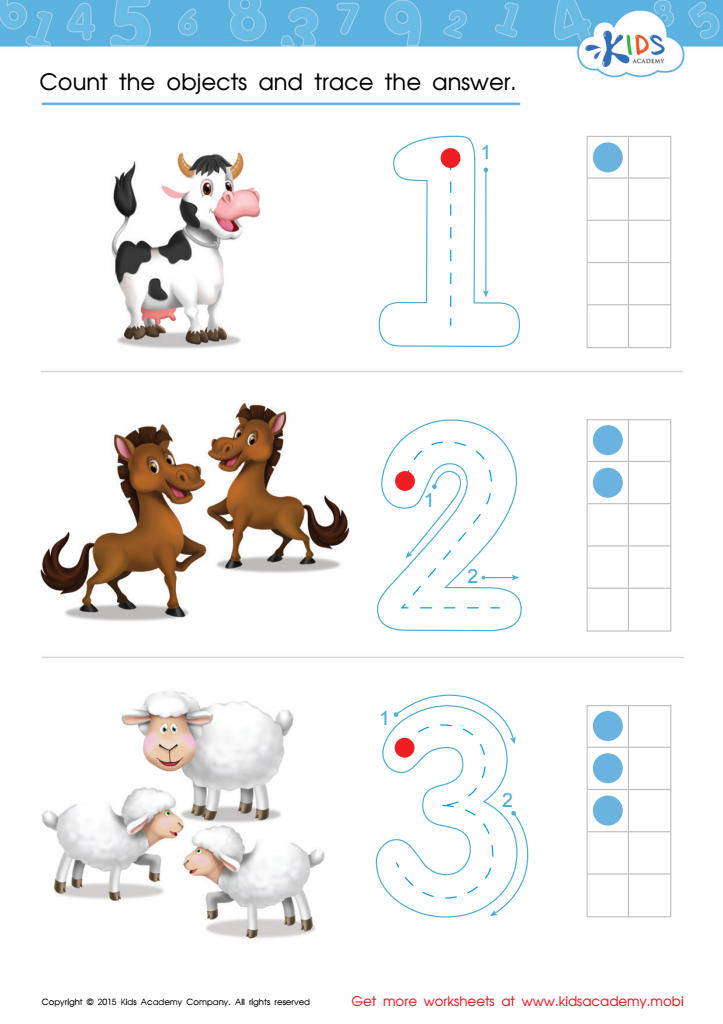

Count and Trace 1 – 3 Worksheet
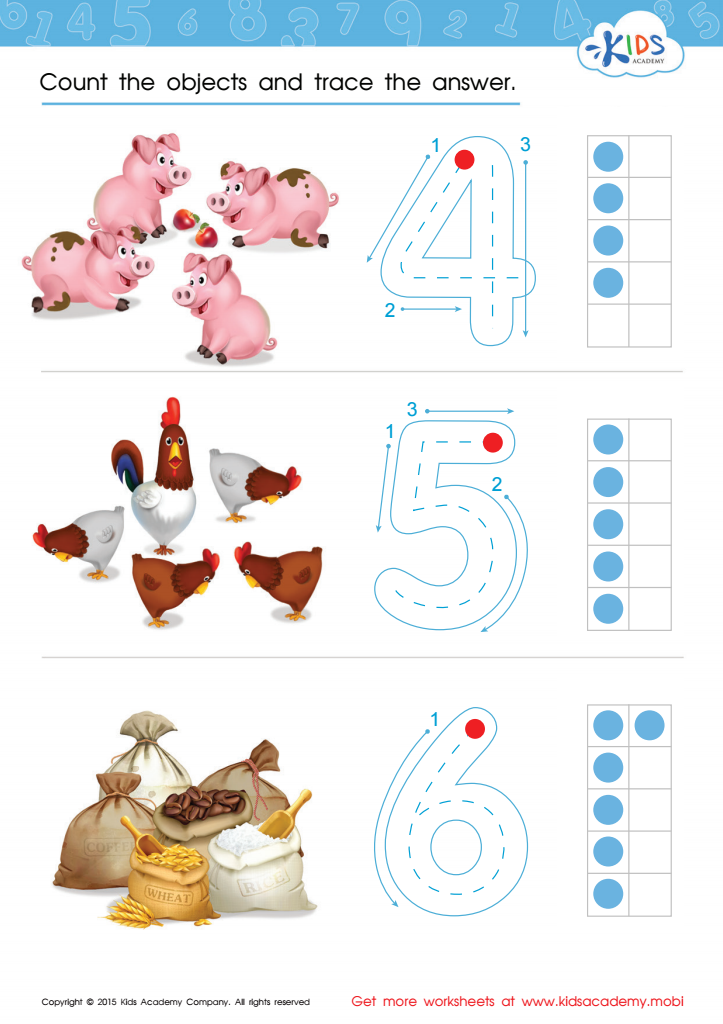

Count and Trace 4 – 6 Worksheet
Easy Tracing Numbers worksheets activities stand as a foundational tool in early childhood education, offering a myriad of benefits for young learners. These activities not only introduce children to the world of numbers in an engaging manner but also pave the way for developing essential skills that are crucial for their academic growth.
First and foremost, Easy Tracing Numbers worksheets activities are instrumental in enhancing fine motor skills. The act of tracing requires children to use their fingers and hands in precise ways, which strengthens their dexterity and hand-eye coordination. This improvement in fine motor skills is not only beneficial for writing but also for other daily activities, such as tying shoelaces or buttoning clothes.
Moreover, these activities serve as a gentle introduction to the concept of numbers and mathematics. By tracing numbers, children become familiar with their shapes and the order they come in, laying a strong foundation for numeracy skills. This familiarity is the first step towards understanding more complex mathematical concepts, making the transition smoother and less intimidating for young learners.
Furthermore, Easy Tracing Numbers worksheets activities promote cognitive development. As children concentrate on following the dots or lines to form numbers, they enhance their focus, attention to detail, and memory retention. This cognitive exercise is crucial in early childhood education, setting the stage for successful learning experiences in the future.
Additionally, these tracing activities offer a sense of accomplishment and boost self-esteem. Completing a worksheet successfully can be a source of pride for young children, encouraging them to engage more deeply in the learning process and to take on new challenges with confidence.
In conclusion, Easy Tracing Numbers worksheets activities are a valuable educational tool. They not only make learning about numbers fun and interactive but also contribute significantly to the development of fine motor skills, cognitive abilities, and early numeracy. By incorporating these activities into the learning curriculum, educators can ensure a holistic developmental approach for their young learners.

 Assign to My Students
Assign to My Students















